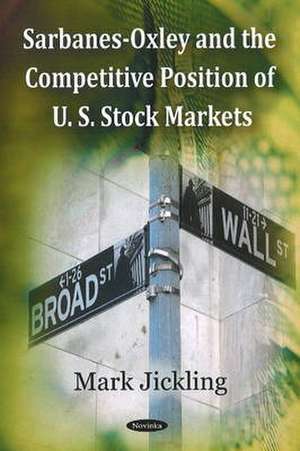Sarbanes-Oxley and the Competitive Position of U.S. Stock Markets
Autor Mark Jicklingen Limba Engleză Paperback – 30 apr 2009
Preț: 224.76 lei
Preț vechi: 307.80 lei
-27% Nou
Puncte Express: 337
Preț estimativ în valută:
43.01€ • 44.74$ • 35.51£
43.01€ • 44.74$ • 35.51£
Carte disponibilă
Livrare economică 22 martie-05 aprilie
Preluare comenzi: 021 569.72.76
Specificații
ISBN-13: 9781606921661
ISBN-10: 1606921665
Pagini: 32
Ilustrații: tables & charts
Dimensiuni: 156 x 227 x 5 mm
Greutate: 0.1 kg
Editura: Nova Science Publishers Inc
ISBN-10: 1606921665
Pagini: 32
Ilustrații: tables & charts
Dimensiuni: 156 x 227 x 5 mm
Greutate: 0.1 kg
Editura: Nova Science Publishers Inc
Cuprins
Preface; Introduction; Who Are the Competitors?; Trends in Exchange Listings; IPOs and Capital Formation; Conclusion; Index.















